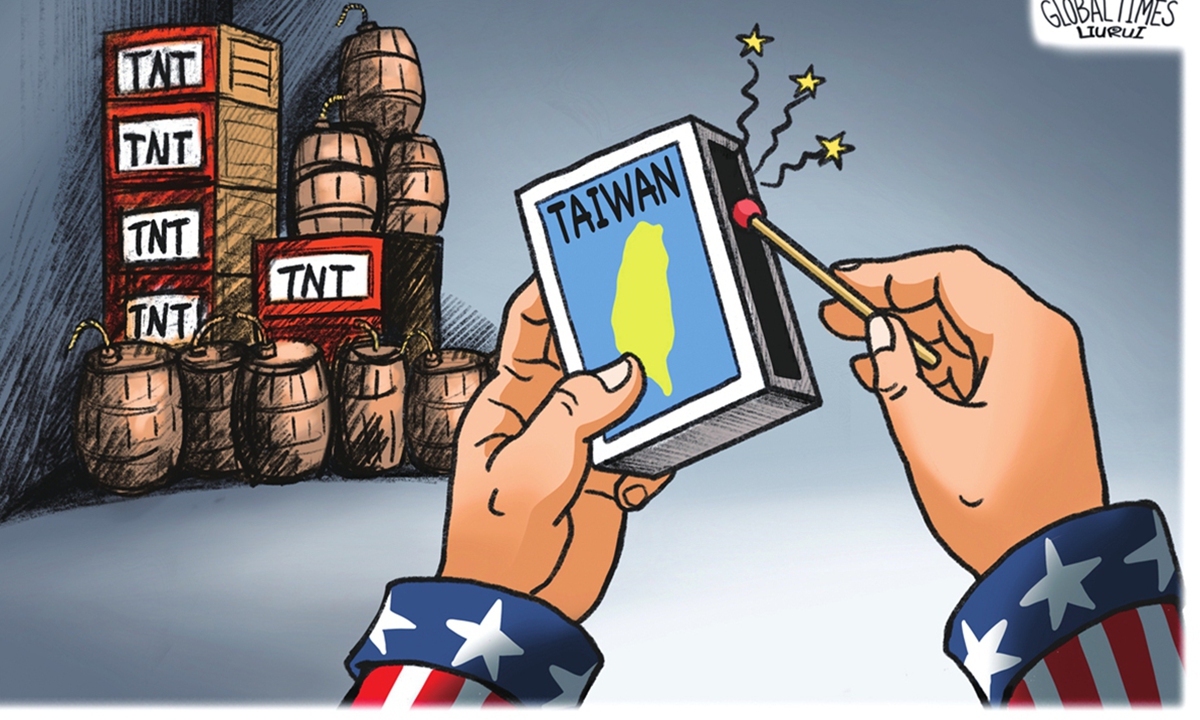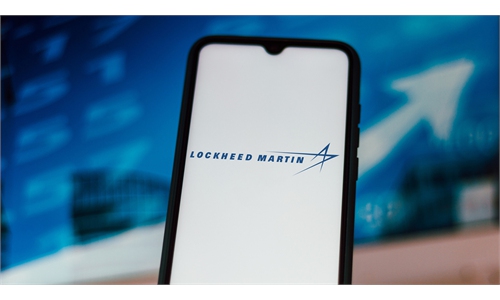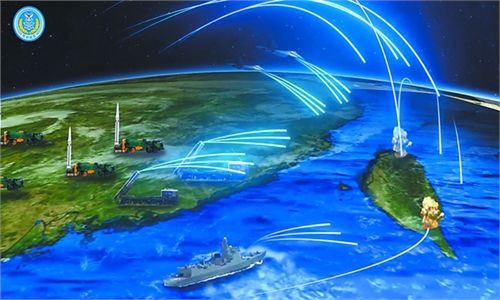Taiwan island a sacrificial lamb to project US domination and military power into Asia-Pacific

Illustration:Liu Rui/GT
No matter who leads Taiwan island, the road to independence is a dead end, no matter whether it be Tsai Ing-wen, Lai Chang-te, the next Democratic Progressive Party (DPP)'s candidate for Taiwan's regional leader election next year, or anyone else, and this must be understood firmly. The only way to serious cross-Straits peace is the ultimate recognition of the 1992 Consensus that there is only "one China" and that Taiwan in turn, is part of China. As such, it must be made clear that any attempt to deviate from this position, or to encourage foreign intervention on behalf of a secessionist cause, is doomed to fail and cannot end well for the island.
Currently, the DPP regime governing Taiwan island seeks to reject that the island is part of China. Pretending that Taiwan is a "separate" country, the DPP has sought to try and expand Taiwan's "space" through a provocation policy of publicity stunts which has involved inviting as many anti-China figures and politicians to the island as possible, while seeking to undermine the commitment of various countries to the one-China principle, which has included the US, Japan and most notably with the "Taiwan Representative Office" row, Lithuania. In doing so, the island's regional leadership rejects the overwhelming consensus of the international community and the United Nations itself.
The US, for the purposes of attempting to contain the rise of China, has sought to likewise backtrack on its commitment to the one-China policy, and has slowly begun to change the status quo across the Straits. By deliberately instigating tensions on the issue, the US has projected instability into the region, which it has then used to expand its military presence. For example, in creating Taiwan crises, it has then pushed the Philippines to open more military bases for the US military.
But this does not mean the US is advocating the best interests of the island. Instead, the US seeks to turn Taiwan island into another "Ukraine," that is a sacrificial lamb to project American domination and military power into the region, at the expense of Taiwan's prosperity, security and its own people. In the event the US gets what it wants, Taiwan will not prosper or be free, but will ultimately end up being devastated at the strategic gain of America. As such, if Taiwan island seeks peace, it is pivotal that its own regional leadership comes to reason and acknowledges that the island is a part of China, as opposed to pursuing the dangerous pipe dream of independence.
When looked at through this angle, if Taiwan island can come to terms with its existence, and acknowledge the 1992 consensus again that it is part of China, there is no reason as to why cross-Straits relations with the mainland cannot improve. This does not mean there will be no differences, or disagreements, but that consensus is the most important thing of all. The mainland after all, does not seek to contemplate the sheer destruction of its own people in resolving the Taiwan question and its leadership has repeatedly stressed that it would prefer peaceful reunification. The use of force is presented as a means of deterrence against the foreign aggressors who seek to divide the country for their own ends, but it is ultimately the US who is fanning the flames of war to exert their geopolitical ambitions in the so-called "Indo-Pacific."
Taiwan must understand that the road to independence is a road to ruin, a road to devastation, destruction and the undoing of everything the island has achieved and grown in the past over 70 years. It is time for the island to come home to China, peacefully, willingly and pragmatically, and to recognize the reality. Only through these means can peace and certainty be secured, and the island have a much more prosperous future.
The author is a political and historical relations analyst. opinion@globaltimes.com.cn


